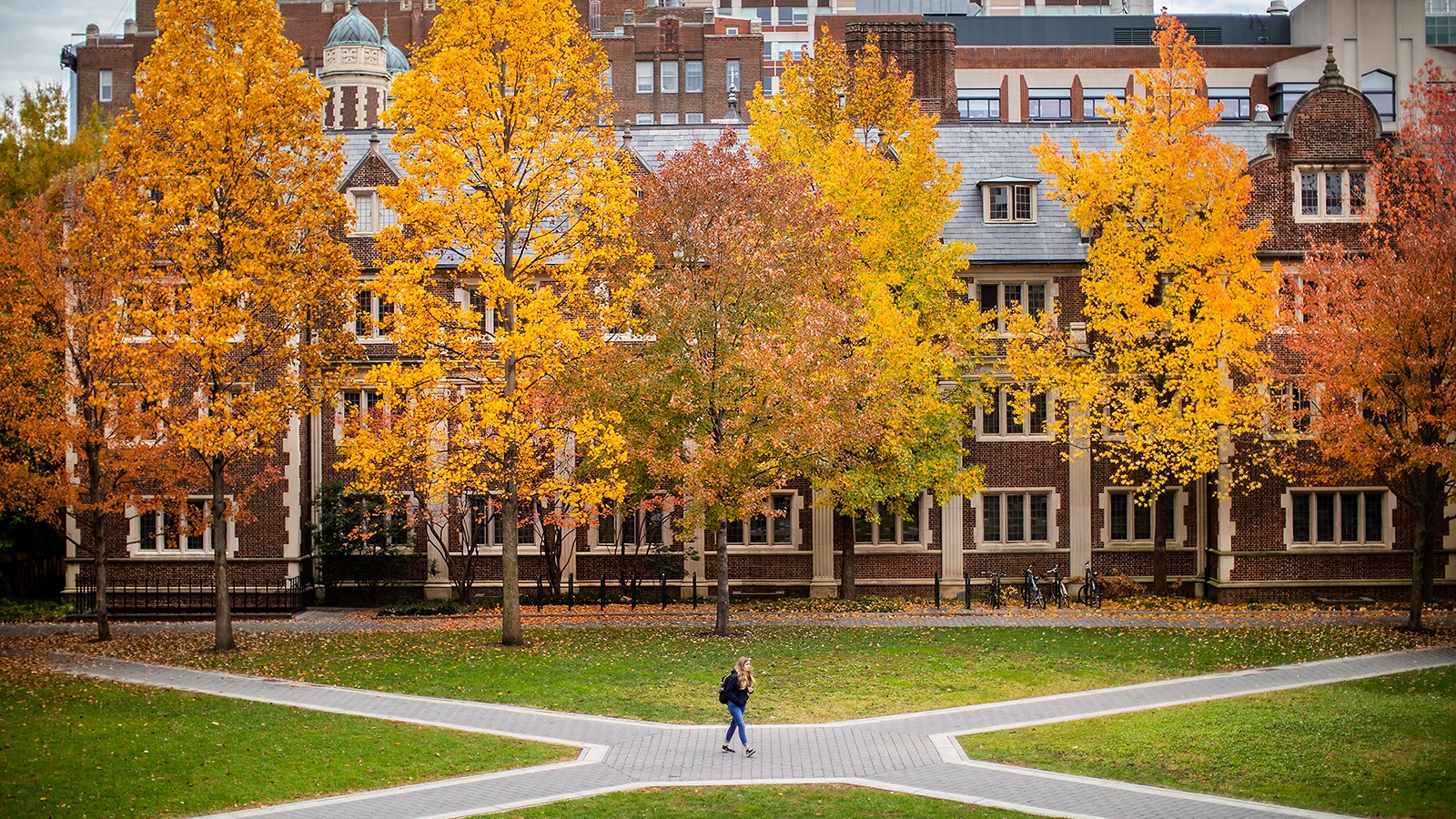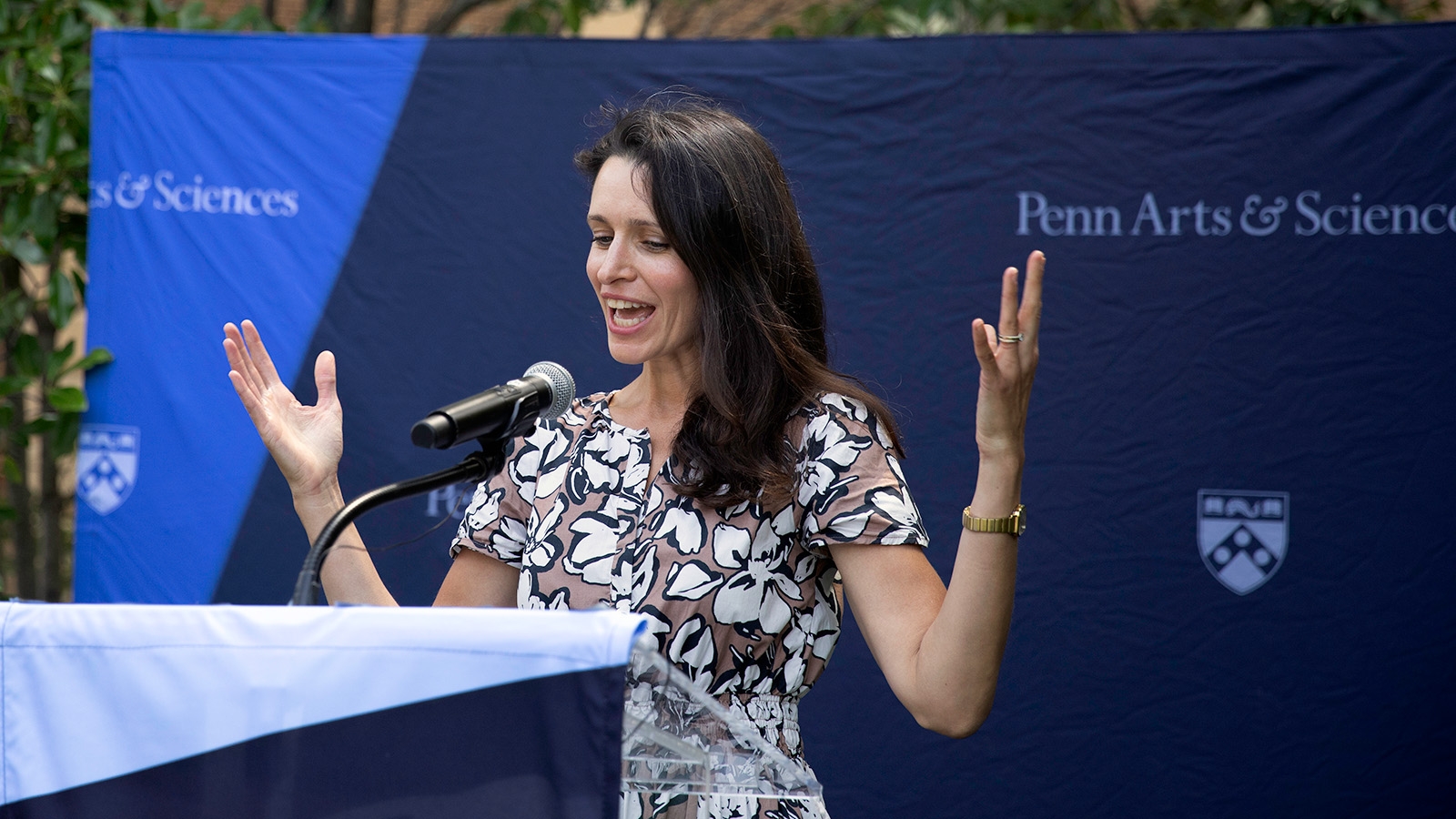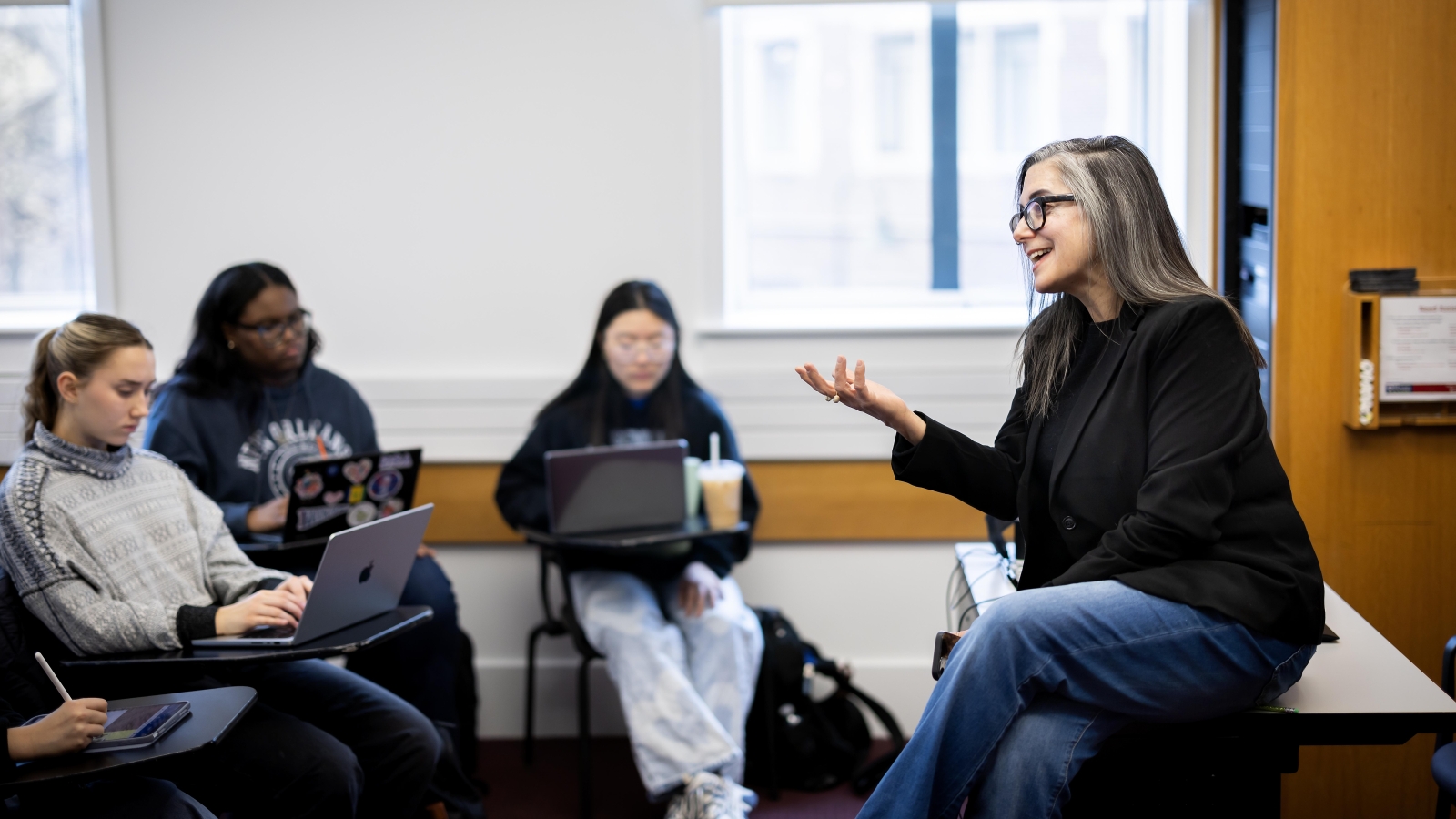With a population of 8,195, the town of Oberlin, Ohio, is hardly a booming metropolis. But according to Sara Jaffee, an assistant professor of psychology who grew up there, its smallness is deceptive. Walk into a public school, and it feels like you’re in a city. “It’s surprisingly diverse,” she says. “The families vary enormously – racially and by socioeconomic status.”
A midsize town that’s a microcosm of a teeming city is not such a bad place for a social scientist to come of age. And because Jaffee’s parents were teachers, she had easy access to closely observed “data.” Her mother taught first and second grades, and her father continues to teach high-school math. “Dinner conversations were often about my parents’ students, how they were doing and why they were doing well or poorly,” Jaffee recalls. “I was always aware of how much baggage these kids brought into the classroom.”
During senior year of high school, Jaffee volunteered in her mother’s classroom, and she was charged with watching Dante, an easily distracted first-grader. He was fine when Jaffee worked with him one-on-one, but unmonitored, he was a whirling dervish. Jaffee remembers him as a bright kid with a sweet temperament who shouldered a chaotic home life. “I was very aware of how much he and some of the other kids were dealing with,” she says.
Spending time with Dante and the other students in her mother’s classroom piqued her curiosity about the connections between environment and genetics, behavior and outcome. At Oberlin College, she majored in psychology. As a graduate student at the University of Wisconsin-Madison, she was a research assistant for a professor who specialized in experimental social psychology, producing papers on gender differences in moral reasoning and mathematics.
In her third year, Jaffee took a class in developmental psychology with Professor Avshalom Caspi. She became excited by his interest in the possibility that people shape their own environments. Ironically, she was about to turn her own environment on its head. After starting to question her desire for a career in academia, she took a leave of absence and found herself living in Brooklyn, commuting each day to Yonkers, where she worked in the survey-research department of Consumer Reports magazine. "It was a funny place to work," she says. "They were always auctioning off things like toaster ovens." Instead of probing the intricacies of human nature, she was comparison-testing the durability of pantyhose. After a year, she realized she was unsuited for anything besides academia.
Jaffee returned to school in 1998 just as The Nurture Assumption, by Judith Rich Harris, reignited the debate between nature and nurture. In her book, Harris takes an extreme stance, writing that parents have no impact on their kids' development beyond providing DNA. The pendulum had swung all the way to the other side from the 1970s, when predominant theories traced outcomes directly back to parenting styles. "I was interested in taking a middle-of-the-road perspective," says Jaffee, "in using behavioral genetics to help measure how much genetic factors can explain certain behaviors, but at the same time looking at how the environment factors in, especially when a kid's genetically vulnerable." In other words, how do nature and nurture interplay to affect the lives of disadvantaged children?
Working with Caspi at the Institute of Psychiatry at King's College in London for the next three years, Jaffee published studies that challenged conventional wisdom. A 2002 study of teen mothers in New Zealand found that the young women probably would've ended up with the same negative outcomes even if they'd waited to have kids. Being a teen mom was impairing, but the factors that led to them dropping out of school and living below the poverty line – low IQs and aggressiveness – predated their pregnancies. But were they a result of nature or nurture?
Jaffee further explored that question with a study on antisocial fathers. She was the lead author of a 2003 paper concluding that the longer children live with fathers who display high levels of antisocial behavior – lying, stealing, bullying, inability to hold down jobs – the greater the likelihood that those children will develop conduct problems themselves. Not only do the antisocial fathers pass on "risky" genes to their children; they also provide rearing experiences that tend to nurture antisocial behavior. At the time, she urged policy-makers to note the implication that encouraging biological parents to marry isn't always in a child's best interest.
Since her appointment at Penn in 2003, Jaffee's research has focused on the factors that lead to child abuse. Is it something about the child or something about the parent? "We've found no evidence that there's some genetic influence to account for children eliciting maltreatment from an adult," she says, "which was a relief to me, frankly." The kids in the study who were genetically inclined to misbehave were more likely to be smacked or spanked as punishment, but their provocative temperaments didn't up their chances of being abused.
The studies Jaffee has produced as a postdoctoral fellow at King's College and as a member of Penn's faculty garnered the 2006 Early Career Research Contributions Award from the American Psychological Association's Society for Child and Adolescent Clinical Psychology. "It's nice validation," she says. "Academia can be lonely. It's not often that you get confirmation you're doing a good job."
She never doubts her decision to return to academia after the yearlong blip in New York testing products for Consumer Reports. "I really value the flexibility that academia affords," she says. "Your ideas are your own. Your time is your own. Your career can be self-directed."
Going forward, the young psychologist is studying a dataset of 5,000 kids in foster care. "When a child is removed from the biological parents, you can start disentangling nature from nurture kinds of questions," says Jaffee. She's especially interested in the kids who do better than you'd expect and in the factors that indicate their resilience.
Dante, the first-grader who started her thinking about these issues, moved away from Oberlin, and Jaffee lost track of him. As she monitors the thousands of children in her studies, she wonders where and how he ended up. "He was so charming," she recalls, "and he was born with the decks stacked against him."


